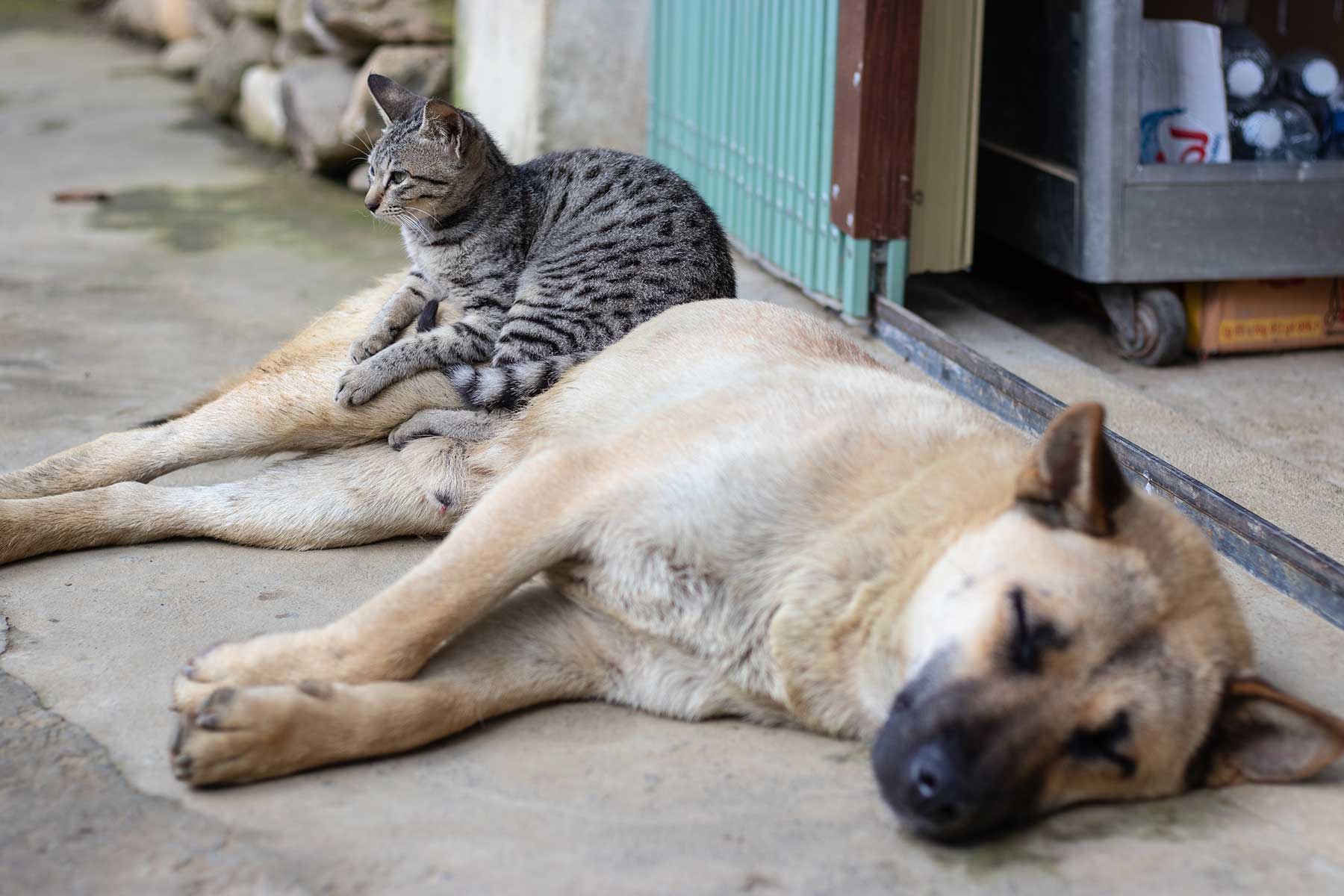If you’re going away on holidays and thinking of boarding your pet, you may need to start planning early. Kennels and catteries are often full over the festive season, public holidays and school holiays, so you might need to book your pet in early. Also, as boarding facilities place pets in close proximity, there is increased risk of them catching an infection. It’s important your pet is fully vaccinated at least two weeks before boarding.
Choosing a kennel or cattery
The choice you make in a kennel/ cattery will come down to a number of factors, such as location, facilities, price and suitability to your pet. It’s also critical that you choose a boarding facility that requires full vaccination of their animals – this will miminise the risk of your pet getting sick during his/ her stay. A few hallmarks of a good boarding facility include:
- Requirement of full proof of vaccination prior to boarding
- On enquiry, you are asked for information about your pet – his/ her breed, temperament and daily routine
- On booking, you are asked for your pet’s full medical history and your vet’s contact details
- All staff are qualified in canine/ feline behaviour or veterinary care
- Extra charges (i.e. for coat, diet, exercise) are explained to you upfront
- Boarding facilities can provide many other services, e.g. behaviour training, individual care and exercise, pick up and drop off services, grooming, veterinary care to name a few. Think about what will be convenient for you and make your best friend’s stay the most pleasant.
Vaccinations for Dogs
The recommended minimum requirement for dogs going to kennels is the C5 vaccination. This provides immunity against distemper, hepatitis, parvovirus, parainfluenza and bordatella (which causes kennel cough). It’s recommended your dog’s vaccinations are fully up to date and if a booster is due it is done at least 2 weeks prior to boarding them.
Vaccinations for Cats
The recommended minimum requirement for cats going to catteries is the F3 vaccination. This provides immunity against feline enteritis and feline respiratory syndrome (commonly called ‘cat flu’). Your vet may also advise vaccination against Chlamydophila and Feline Leukaemia. The FIV vaccination is also a good idea. It is recommended your cat’s vaccinations are fully up to date and if a booster is due it is done at least 2 weeks prior to boarding them.
Helpful Hints
- Start researching boarding facilities now. It may take a few weeks to find the right one for your pet.
- Once you have settled on a boarding kennel or two, personally visit the facilities, meet the staff and determine if you are comfortable with the level of care provided.
- Find out the boarding facility’s vaccination requirements as early as you can.
- Vaccinate your pet(s) at least 2 weeks before boarding as immunity can take that long to develop.
- Ensure heartworm, intestinal worming and flea treatments are up to date.
- Provide the boarding facility with an outline of your pet’s medical history and current medication.
- Provide the boarding facility with your preferred veterinary clinic details.
- Think about any special feeding, bedding or exercise requirements you pet needs or might enjoy during their stay.











